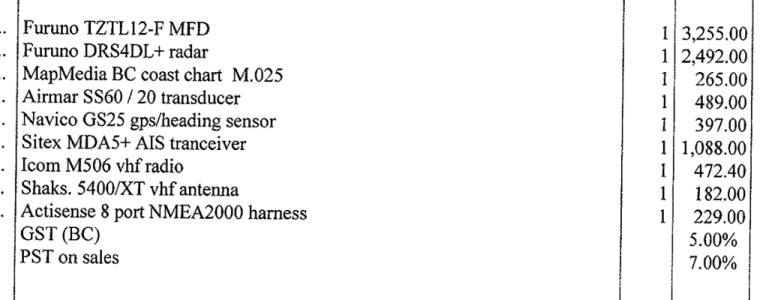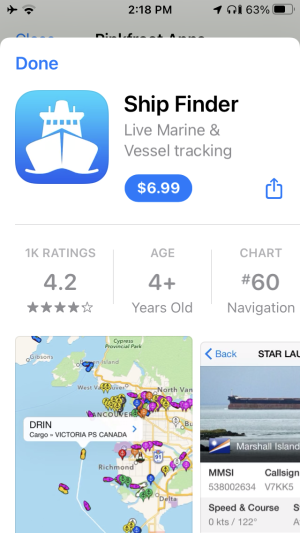US= 20 meters and up = illegal for commercial boats and vessels 20M+ to turn it off when operating within the 12 mile EEZ
Not sure what Canadian laws are
QUOTE
The Coast Guard issued a warning yesterday to mariners and commercial fisherman about the dangers and legal consequences of disabling a vessel's automated identification system.
The Coast Guard has seen an alarming increase of commercial fishing and crabbing vessels disabling their AIS, purportedly in an attempt to keep their fishing spots secret from competition.
"AIS is a vital tool in a host of Coast Guard missions including search and rescue and port security," said Lt. Collin Gruin, boarding team supervisor at Coast Guard Sector Columbia River. "It's not only illegal to turn it off but also incredibly dangerous."
AIS is a maritime navigation safety communications system adopted by the international community to help save lives and facilitate safe transit of navigable waterways.
AIS automatically transmits vessel information to shore stations, other ships, and aircraft. That includes vessel identity, type, position, course, speed, navigational status, and safety-related information.
The regulation (33 CFR 164.46) in part states that all self-propelled vessels, at a length of 65 feet or more, engaged in commercial service and operating on the territorial seas (within 12-nautical miles of shore) must maintain AIS in effective operating condition, which includes the continual operation of AIS and its associated devices (e.g., positioning system, gyro, converters, displays) at all times while the vessel is underway or at anchor, and, if moored, at least 15 minutes prior to getting underway.
Effective operation condition also includes the accurate input and upkeep of all AIS data fields. An AIS encoding guide has been provided to facilitate complying with this requirement.
Violators of this regulation can expect to receive a civil penalty up to a maximum of $35,486 per violation.
"Crabbers may think that they are protecting their businesses, but they are actually making search and rescue efforts more difficult if an emergency happens at sea," said Gruin.
UNQUOTE



